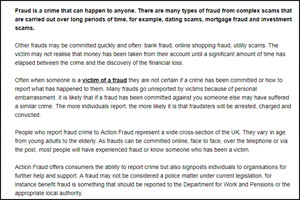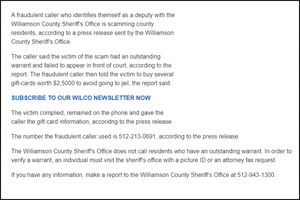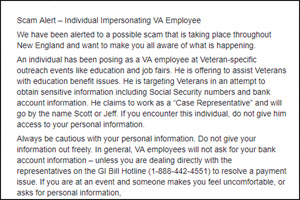Individual Scams
Insurance companies come forward to settle the claim amount whenever the insured is admitted to the hospital due to sickness or illness. Insurance is a wonderful arrangement wherein the insurance company provides compensation to the victim whenever they fall sick due to various reasons. But scammers, often operating from distant locations, pose as agents or intermediaries and try to extract money from the target group. They present themselves as government intermediaries offering government insurance schemes at the lowest premiums and request the target group to pay a small amount as a premium for processing their policy. Once individuals make the payment, the scammers do not send any policy and abscond with the money.
Individual scams encompass a diverse range of deceptive practices designed to exploit people for financial gain or personal information. Phishing scams involve fraudulent attempts to obtain sensitive data, often through deceptive emails or websites impersonating trusted entities. Romance scams exploit individuals emotionally by building fake romantic relationships online, leading to financial exploitation. Tech support scams manipulate individuals into paying for unnecessary services or providing remote access to their computers. Lottery or prize scams entice victims with fake winnings, demanding upfront fees or personal information. Job or employment scams offer enticing opportunities, requesting upfront payments or personal details. Impersonation scams involve fraudsters posing as officials or professionals, creating false emergencies or threats to extort money. Loan scams promise funds in exchange for upfront fees but result in financial losses.

Scams related to Medicaid and health insurance are becoming increasingly common throughout the country, and many innocent people have lost their hard-earned money to fraudsters who pose as middlemen. Medicaid is a state-administered medical insurance program wherein the federal, county, and state governments provide medical assistance to people living in low-income or below-the-poverty-line groups. Scams related to individual insurance are also becoming widespread across the world, and individuals should exercise maximum caution when opening emails or conversing with third parties. Scammers often create fake policies and attempt to solicit business through emails. They target innocent people and run away with the money once the victims make a deposit. These fraudsters frame enticing sentences such as, "We provide you world-class health insurance at affordable premiums, with no health checkup and guaranteed acceptance." Such offers often mesmerize the common public. They may also include the policy’s terms and conditions along with the email. Individuals across the country have lost thousands of dollars to these professional scammers who sell fake health insurance policies.
Charity scams misuse goodwill by posing as fake organizations and soliciting donations for fraudulent causes. Investment scams lure individuals with promises of high returns, ultimately leading to financial losses. To protect against individual scams, people should exercise caution with personal information, verify the legitimacy of all communications, avoid making upfront payments to unknown entities, thoroughly research job offers, investments, or romantic interests, stay informed about common scam tactics, and promptly report any suspected scams to the appropriate authorities. By staying vigilant and informed, individuals can reduce their risk of falling victim to deceptive practices and safeguard their financial well-being and personal information.

Scams related to health insurance are increasing day by day, and scammers use various tactics to fool individuals. Commoners can protect their money from being laundered by following these guidelines:
Perform a background verification check to find out whether the sender of the mail is a licensed intermediary or agent for the insurance company.
Do not trust emails claiming very low premiums, as these are common tactics used by scammers.
Cross-check with the state government and the insurance company to verify whether such policies actually exist. Clarify with the concerned insurance company immediately after receiving such emails.
Never share your credit card number, bank account number, password, or PIN with third parties.
Avoid answering unsolicited calls from foreign countries. Jot down the phone numbers of the scammers.
Do not interact with scammers or reply to their emails, as they may request the recipient to make a deposit.
Report scams to the federal government or cybercrime cells.





